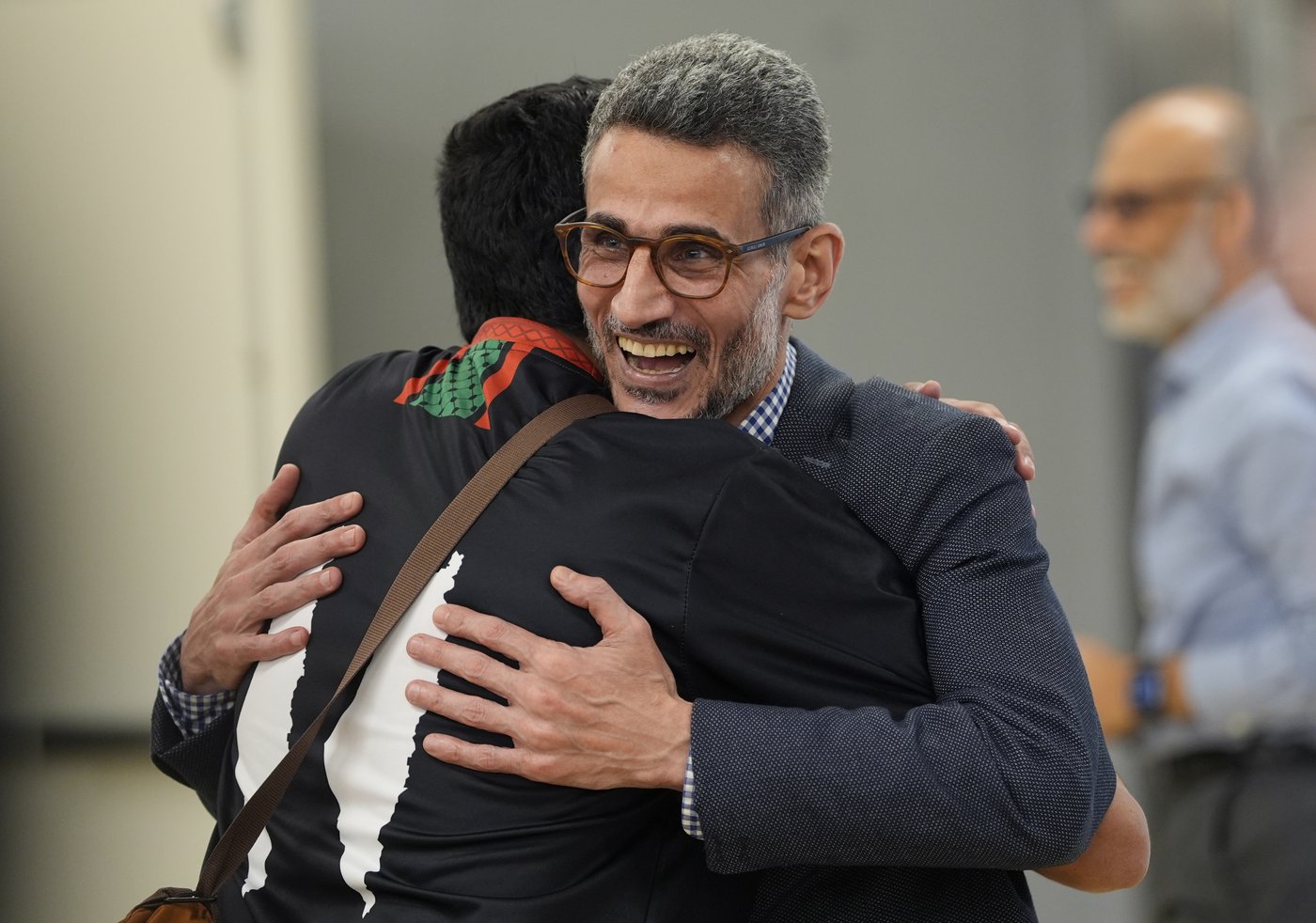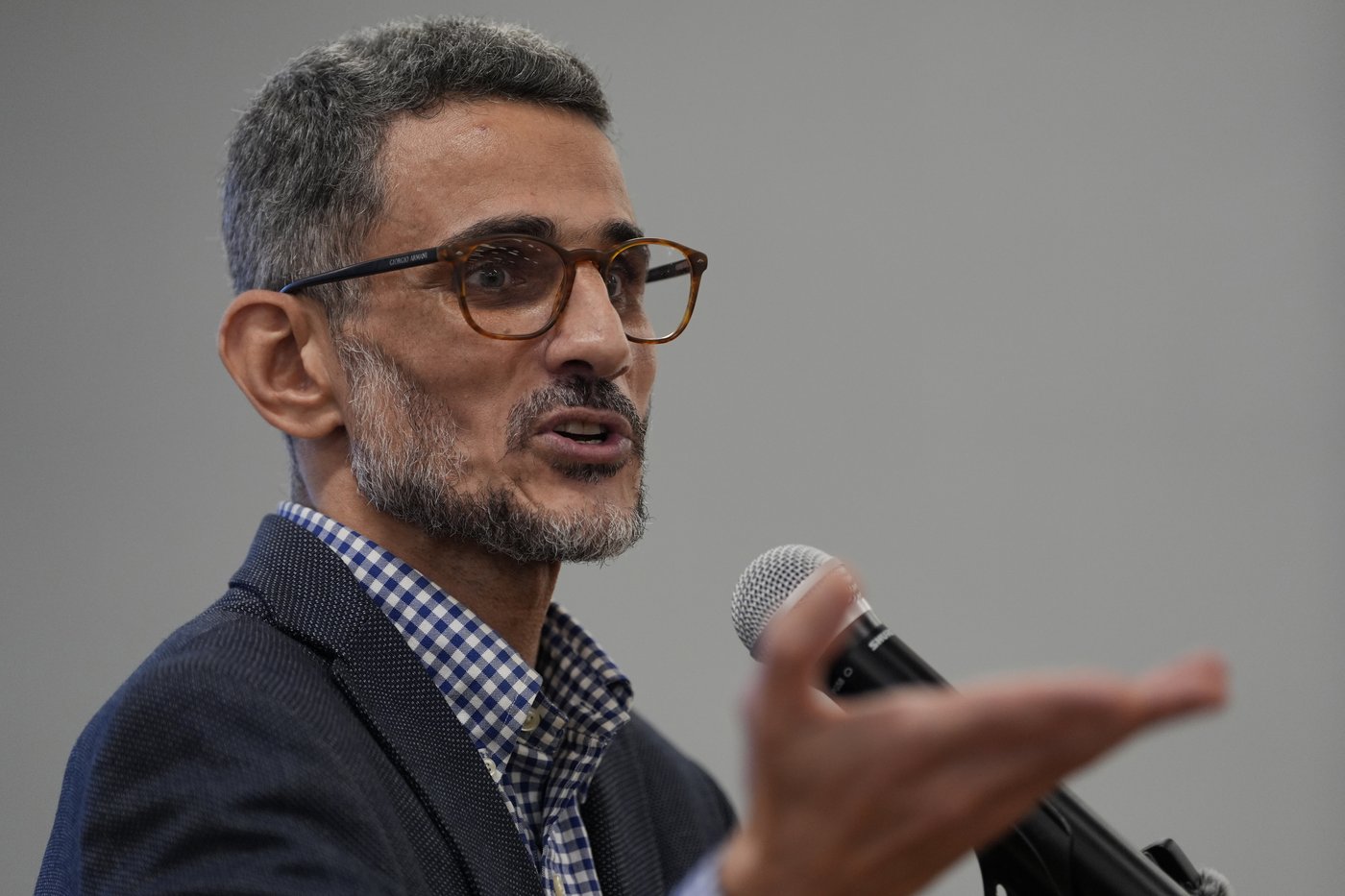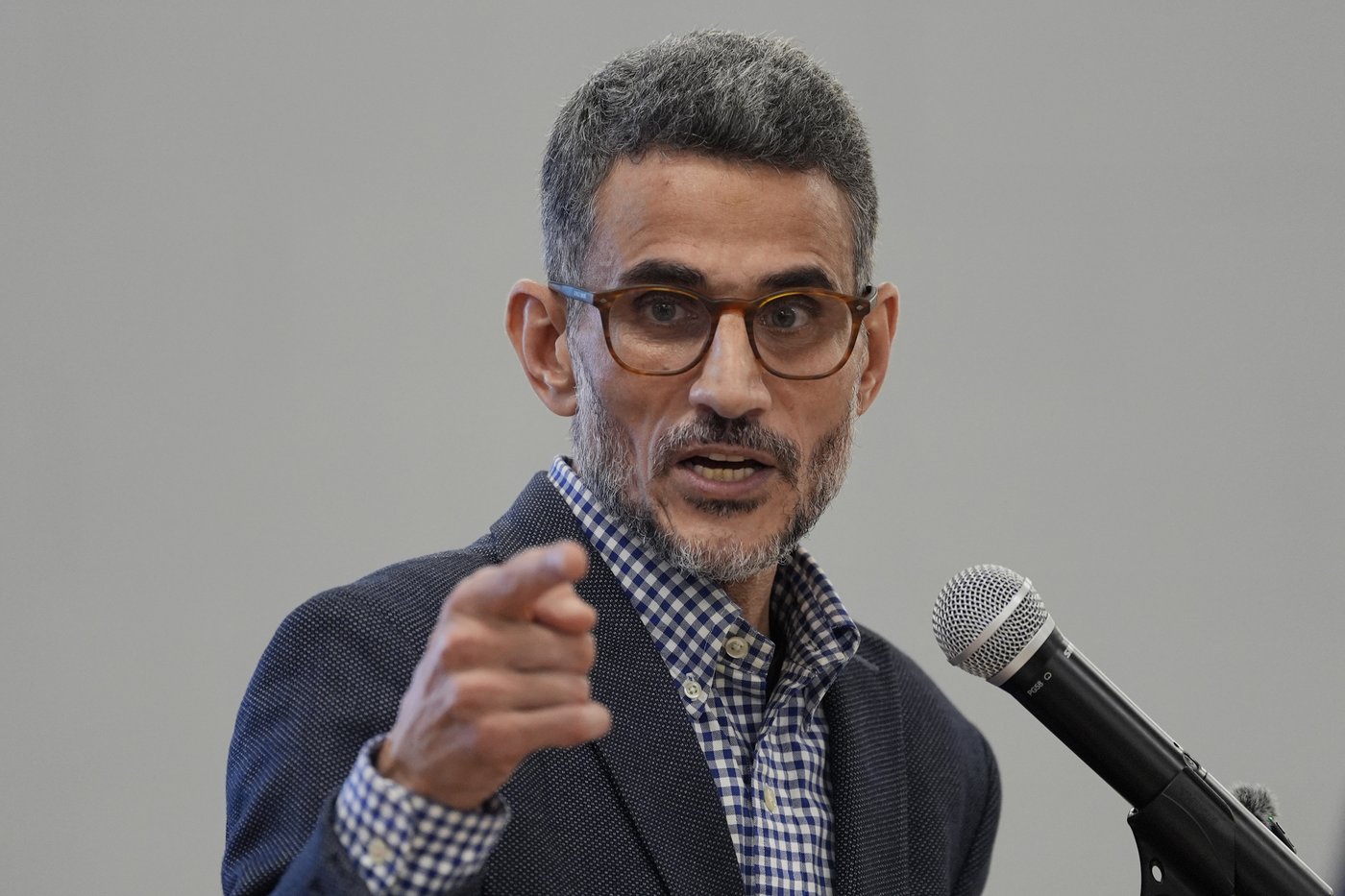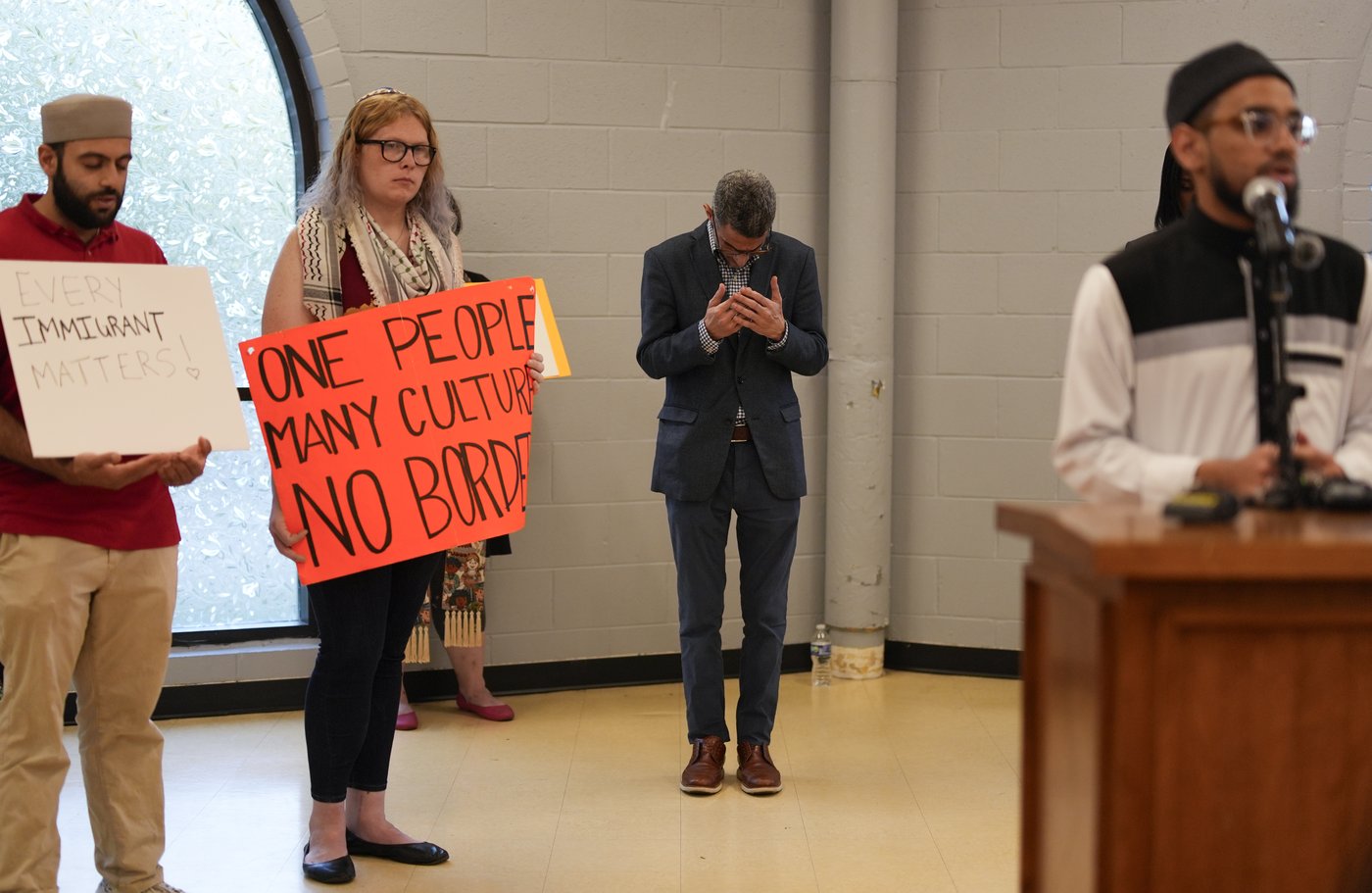Elevate your local knowledge
Sign up for the iNFOnews newsletter today!
Sign up for the iNFOnews newsletter today!
Selecting your primary region ensures you get the stories that matter to you first.

An Egyptian immigrant who has worked as a chaplain for a Cincinnati hospital was released Friday after weeks in detention.
Ayman Soliman was detained in July during a check-in with immigration officials. Soliman served as an imam — a Muslim religious leader — in Egypt for 14 years before fleeing to the United States in 2014, according to the Initiative on Islam and Medicine, where he serves as a board member.
Speaking to supporters after his release Friday evening, Soliman thanked the community for advocating on his behalf and recalled how his fellow detainees celebrated as he was released. His press conference was paused briefly as people attended to afternoon prayers.
“I can’t find words to describe this moment. This is beyond a dream,” he said, as supporters including religious leaders and children held up signs reading “Finally Home,” “Home Is Here,” and “Immigrants Welcome here.” “I will always be indebted to every one of you.”
Nazly Mamedova, one of Soliman’s attorney, said the U.S. Department of Homeland Security sent them a letter Friday saying that it has terminated his removal proceeding and reinstated his asylum. “All cases against him have been closed,” said Mamedova, who was one of the people who picked Soliman up after his release.
“I was so happy. I was crying and screaming,” Mamedova said. “It was just amazing to see him outside. I would go every night go to jail and talk to him. Seeing him outside makes such a big difference. He was so much happier. He hasn’t seen the sun in a long time.”
In a statement, Democratic Rep. Greg Landsman said he was “glad that Ayman has been released and is on his way home and back to our Cincinnati community.”
Young United Souls for Revolutionary Action, a grassroots Muslim organization in Ohio, posted a video of a smiling Soliman being released on their Instagram page. “IMAM AYMAN IS FREE! Alhamdulilah! Press conference details forthcoming! Thank you to everyone who has worked tireless to get him released.”
The Department of Homeland Security said it “cannot discuss the details of individual immigration cases and adjudication decisions.”
According to his lawyers, Soliman was granted asylum in 2018 based on past persecution for his work as a journalist in Egypt during the Arab Spring uprising. His lawyers say he was jailed and tortured for reporting on the intense political conflict.
Soliman was hired as a prison chaplain in Oregon but soon lost that job after the FBI placed an unexplained “flag” on his background profile. In a case that is still pending, he sued to get more information about the flag and to clear his name.
In late 2024, a U.S. asylum officer began proceedings to terminate Soliman’s asylum status, according to his legal team. The officer cited Soliman’s board membership of an organization called Al-Jameya al Shareya as “material support for terrorism” given the group’s links to the Muslim Brotherhood. The U.S. has not designated the Muslim Brotherhood as a terrorist group, though President Donald Trump considered it during his first term.
One of Soliman’s lawyers said in July that Al-Jameya al Shareya is not a terrorist group but rather a nongovernmental organization that provides medical and charitable community services. They accuse the government, which knew about the board membership when it granted asylum, of reversing course in retaliation against his lawsuit.




This site is protected by reCAPTCHA and the Google Privacy Policy and Terms of Service apply.
Want to share your thoughts, add context, or connect with others in your community?
You must be logged in to post a comment.